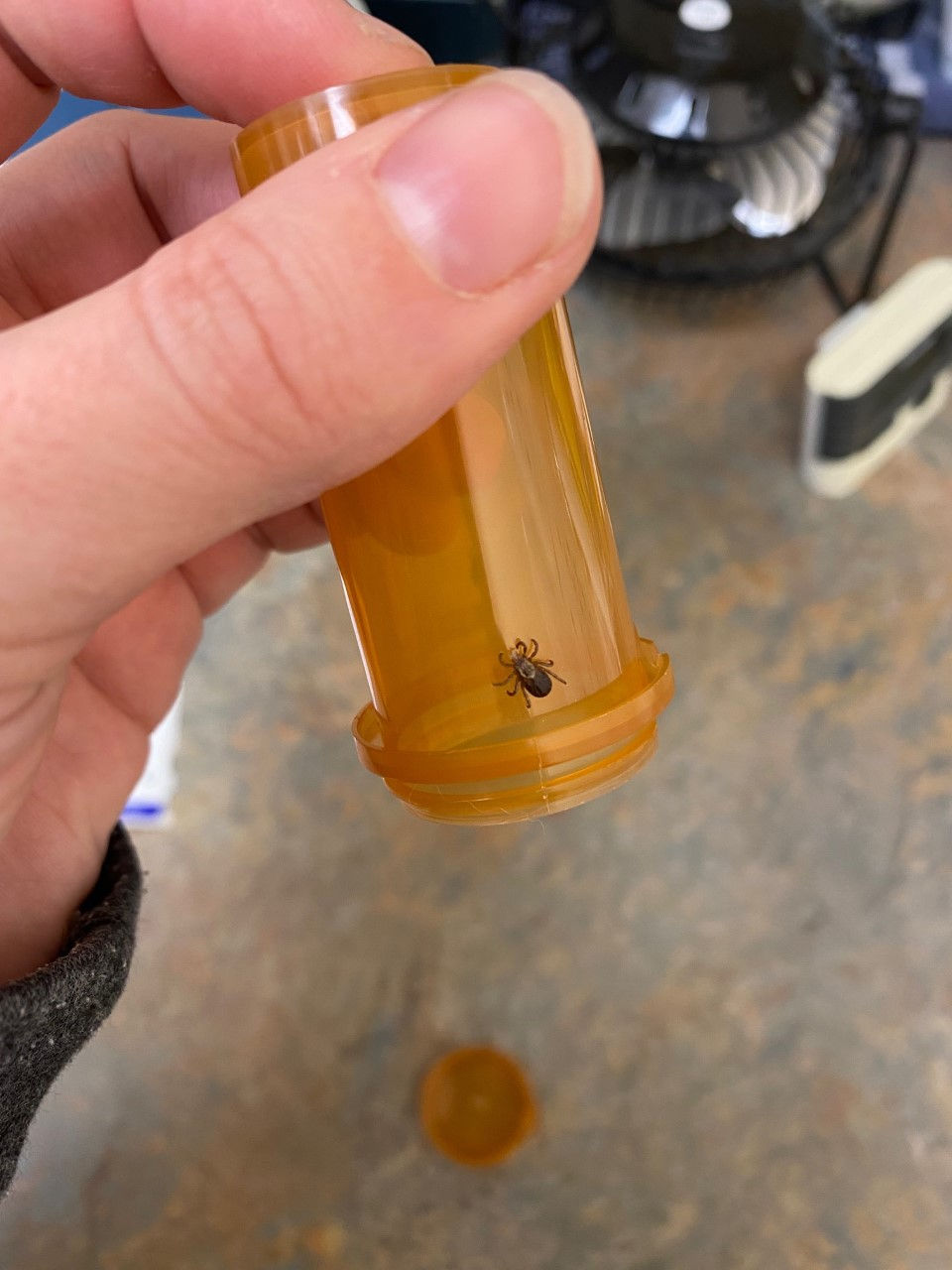Vet Feature - "Icky Ticks"
- Dr Sandy Jameson
- Mar 2, 2022
- 2 min read

Of all the parasites, ticks definitely give me the creepy crawlies! Fleas are quite remarkable with their ability to jump, roundworm larvae can crawl through intestines, skin and eyes in people, but ticks… yuck. They are eight legged arthropods that are remarkable in their own right.
They are sneaky little parasites that can travel long distances on wildlife and their flat body shape makes them very difficult to squish. Ticks are most prevalent in the spring, but can be active any time the temperature is above freezing. One of the biggest concerns with ticks is that they can transmit disease when they attach and feed on a pet. These diseases can include Lyme disease, Ehrlichia, Rocky Mountain Spotted Fever and Anaplasmosis. Fortunately, there are great medications available to kill ticks and thereby prevent disease transmission. Some of the newer medications kill a broad spectrum of tick species and thereby provide our pets with good protection.
"...but ticks...yuck."
Not every species of tick carries Lyme disease, for example. If you find a tick on your pet, put it in a sealed bag or container and take it to your vet. They can send the tick to a lab for identification and to determine if it is carrying Lyme disease. If the tick is attached to your pet, firmly grasp it with a pair of tweezers as close to the skin as you can and pull up with steady even pressure.

"If you find a tick on your pet, put it in a sealed bag....take it to your vet"
Pets that spend a lot of time outdoors, especially where there are a lot of wildlife, are at the greatest risk of being exposed to ticks. However, birds can carry ticks right into city backyards. As previously noted, spring is the highest risk season, but ticks can even be active in the winter. We found a tick on one of our rural patients during the warm weather this January. If you are concerned about ticks, have a discussion with your veterinarian to determine your pet’s risk and the best way to provide them with the appropriate protection.






Comments